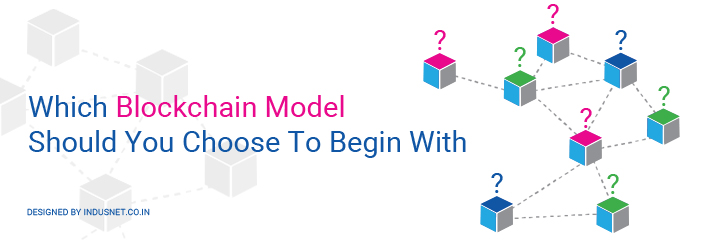
Of all the emerging technologies today, it is blockchain that is discussed most often, yet implemented only by niche entities. One of the reasons why blockchain has not caught up as quickly as we might have assumed is, it feels intimidating even to larger enterprises. In reality, blockchain is accessible, easily implementable, and extremely useful for a business to enhance security, do background checks, maintain records, comply with regulations, and meet various governance and business requirements.
As a decentralized public ledger of all transactions, blockchain is proving to be a revolutionary way to maintain a record of all transactions and to ensure that every transaction takes place smoothly without ambiguities.
However, it may seem overwhelming in the beginning. To achieve operational efficiency through blockchain, it helps to choose the right blockchain model and start incrementally.
Understanding and demystifying blockchain
A blockchain is a distributed database, which acts as a tamper-proof ledger of all transactions and events that a group of entities (or even a single entity) might want to record. As the information is stored on multiple computers, making changes to recorded data (or events) on a single computer will not result in changes across the network. On the other hand, whoever tries to make those changes to recorded data (or events) can easily be tracked.
In other words, blockchain ensures that all digital transactions are stored permanently, and any revisions made to it, whether authorized or unauthorized, is always recorded, along with previous versions of the data. Everything stored in blockchain is protected by advanced cryptography keys, adding an impenetrable layer of security and privacy.
Today, such secure and tamper-proof public ledgers of digital transactions can be used to store and maintain assets, validate and manage identities, contracts, policies, and more.
Blockchain is revolutionary because :
What kind of blockchains are available for businesses to use?
It is natural to wonder if there are different kinds of blockchains for various needs, or if there is a one-size-fits-all model. Blockchain technology can be customized and implemented for every business need, and there are three major kinds of blockchain networks that can be deployed today.
Public blockchain
In a public blockchain, every authorized person can read, send and validate transactions without explicit prior permission. This is particularly useful when decentralization is needed in peer-to-peer situations. You might want to understand a public blockchain as being similar to Wikipedia, where any editor can make changes to a document, though previous versions are always available, and no change can go unnoticed.
Public blockchains are great because :
However, a public blockchain isn’t without disadvantages. They are :
Private blockchain
A private blockchain comes with more privacy and a greater degree of control. Only a certain organization or a group of individuals have write permissions and only they can create new transactions within the network. Authorized individuals and groups may have read permissions. As there are restrictions imposed on read, write and validate permissions, private blockchains are not distributed or decentralized to the level of a public blockchain.
Private blockchains are perfect for intra-business usage where only company executives have access to the network. It is also the perfect blockchain solution where outside-interference or activity is not required.
Private blockchains have a number of advantages such as :
A few drawbacks of private blockchains are :
Is there an alternative to public and private blockchains?
Well, there is. As both public and private blockchains come with their own drawbacks, there is a hybrid version of the two, also known as permissioned or consortium blockchain.
In a permissioned blockchain, write permissions are not assigned to a single organization or a few individuals. Instead, a few pre-determined entities control the process of validating transactions consensually. They also have the permission to assign read permissions.
Permissioned blockchains come with the immutability and efficiency of public blockchains, with a degree of privacy seen in private blockchains. A consortium blockchain (permissioned blockchain) is easily scalable, private, and consensual. Transaction costs are low, and you can start implementing it right away.
Making a choice
It is always difficult to make decisions related to technology, but one must make them when the time is ripe. Every blockchain model comes with its pros and cons, but to begin with, it might be better to implement permissioned blockchains. While public blockchains are great for making online transactions anonymously, private blockchains are great for businesses where power is limited to few executives. However, consortium or a permissioned blockchain is a hybrid of the public and private models and offers more flexibility in terms implementation, privacy, and control.
Begin with incremental innovation
Today, blockchains are being used to register and manage assets, to govern populations and ensure that records are maintained, to engage in background checks and manage digital identities, to make financial transactions and engage in stock trading, and also to automate governance and regulatory reporting. Practically, every industry sector and businesses of all sizes can use blockchains in an incremental way to innovate and enhance operational efficiency.
While public blockchains offer greater decentralization, private blockchains offer a greater degree of control and privacy. However, choosing to innovate incrementally with permissioned or consortium blockchain may be the right choice for you, regardless of your motives.
Contact us today to learn how blockchain can enhance your operational efficiency.